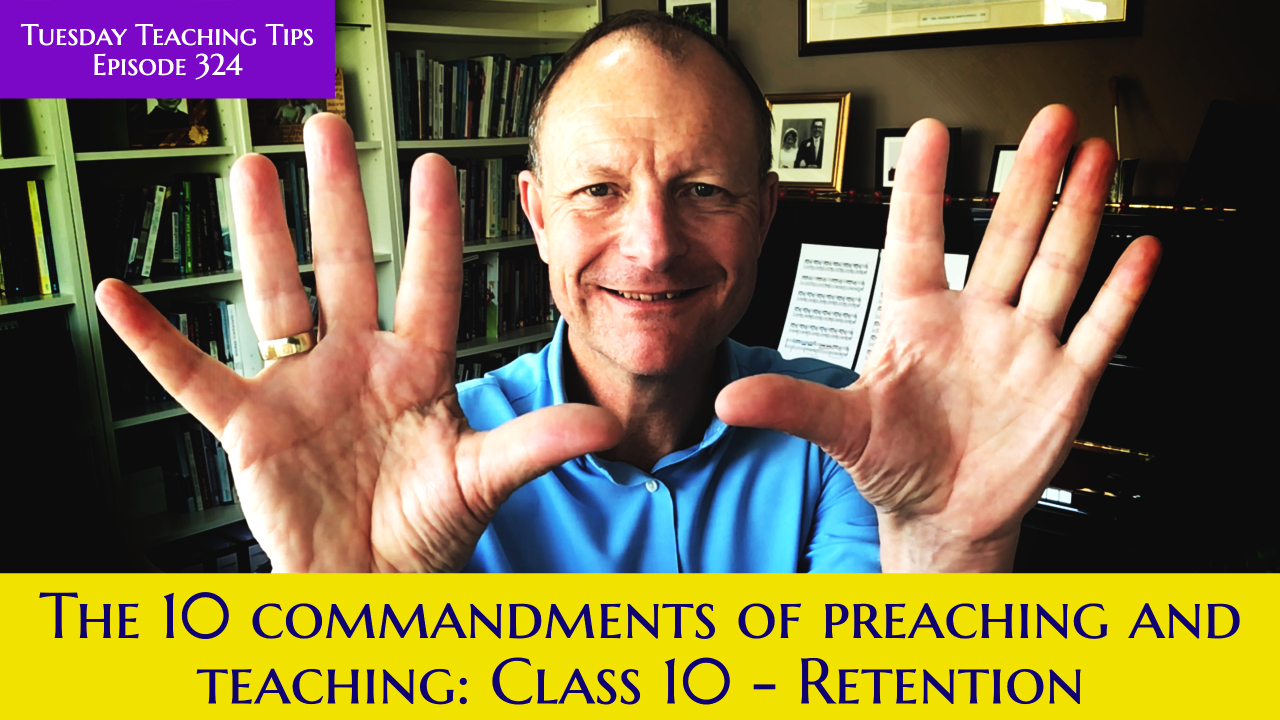The Sunday Sample, Episode 107
In the first chapter of his book “Sing!”, Keith Getty argues persuasively that we are designed by God to sing. The quality is not the issue, nor the competency. If we can speak, we can sing. Both forms of sound are simply airwaves moving over vocal chords.
He lays out several good reasons for all Christians to sing congregationally (regardless of musical talent), but I won’t go over those now. Buy a copy of the book and read it for yourself! However, I would like to quote a summary statement from the end of the chapter (location 394 from the Kindle edition):
“Don’t sing primarily because you love singing, or keep quiet because you do not. Sing because you love who made you, and formed you, and enables you to sing..”
Getty, Keith. Sing! . B&H Publishing Group. Kindle Edition.
Worship leaders should not only be those people who seem to most enjoy singing, but those who most enjoy inspiring and educating the congregation in singing. Perhaps congregations on occasion do not wholeheartedly engage in the singing because they have a wrong understanding of why we sing.
Consider Psalm 98:
“Sing to the LORD a new song, for he has done marvellous things; his right hand and his holy arm have worked salvation for him. The LORD has made his salvation known and revealed his righteousness to the nations. He has remembered his love and his faithfulness to Israel; all the ends of the earth have seen the salvation of our God. Shout for joy to the LORD, all the earth, burst into jubilant song with music; make music to the LORD with the harp, with the harp and the sound of singing, with trumpets and the blast of the ram’s horn—shout for joy before the LORD, the King. Let the sea resound, and everything in it, the world, and all who live in it. Let the rivers clap their hands, let the mountains sing together for joy; let them sing before the LORD, for he comes to judge the earth. He will judge the world in righteousness and the peoples with equity.” (Psalm 98:1–9 NIV11)
When we lead others in musical worship we are not producing harmonious sound from our bodies, but from our spirits. The sounds that come from our mouths originate in the heart, not the lungs.
Is it possible that the maturity and depth of the congregational singing where you are could be developed by reminding and teaching the congregation (as well as yourself) that singing is a response of love and not a responsibility connected with giftedness?
Question for today: “Which Scriptures have you found most helpful in inspiring wholesome understanding about the reasons we sing?”
Please add your comments on this week’s topic. We learn best when we learn in community.
Do you have a question about teaching the Bible? Is it theological, technical, practical? Send me your questions or suggestions. Here’s the email: malcolm@malcolmcox.org.
If you’d like a copy of my free eBook on spiritual disciplines, “How God grows His people”, sign up at my website: http://www.malcolmcox.org.
Please pass the link on, subscribe, leave a review.
“Worship the LORD with gladness; come before him with joyful songs.” (Psalms 100:2 NIV11)
God bless, Malcolm
PS: You might also be interested in my book: “An elephant’s swimming pool”, a devotional look at the Gospel of John
